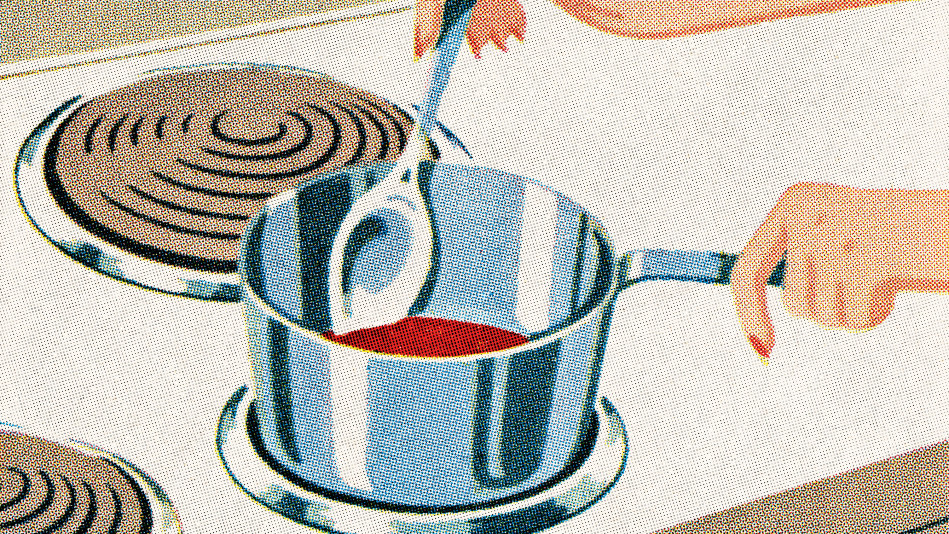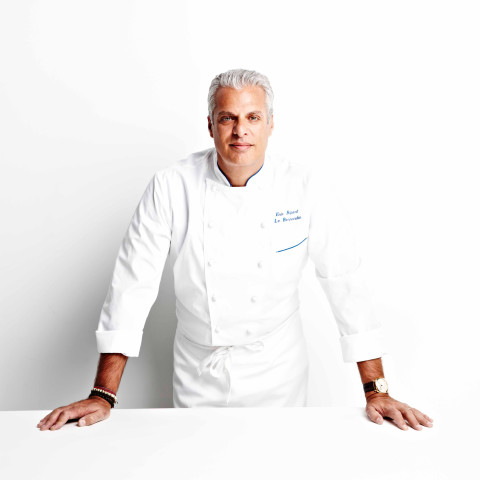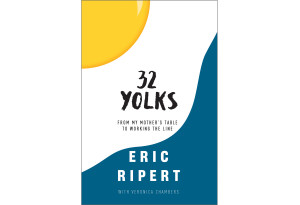Eat, Heal, Love

Their wedding was a film that she played over and over again in her mind. And in the film, my father said his lines with such precision and devotion that it brought a small comfort for her to just close her eyes and listen to him say the words again and again and again: I do. But if my father had been merely acting the part, then somewhere there had been a director, who somewhere along the line yelled, "Cut," giving my father permission to step out of character, and to walk in and out of the marriage as he pleased. The fakeness of what she thought was real was what hurt my mother the most.
My mother was not the type of woman to pour her heart out to family or friends, much less to a little child. So she let me create my own film and do my own casting. She let me think that my father was the hero and she let me cast her as the villain. She let me rewrite history as I saw fit and she never cried foul and she never yelled cut.
The only time my mother and I got along anymore was in the kitchen. As soon as she got home from work, she put a white apron over her silk designer blouse and slacks. That apron was like a superhero's costume; the minute she put it on, she was no longer the evil witch who'd cast my father out, destroying our family and my happiness in the process. She was just Maman. Lovely, capable, loving Maman. And although I would not allow myself to hug and kiss her with abandon as I had before, my anger melted and I let her feel my love.
From crab soufflé to onglet à l'échalote and frites, every meal was intended to make me happy. Because dinnertime was the only time I called a truce, my mother wisely made it last as long as she could. Our meals were long and luxurious. There were always four courses: a starter, a main course, a salad and a dessert. We changed plates between courses, like they did in restaurants. She asked, and I answered, questions about what I'd done in school. More than anything else, I liked when we talked about current events. My teachers were radical, outspoken young women who showed us images of the Vietnam War, and let us express our outrage and revolt about the war.
In turn, my mother regaled me at the dinner table with stories about her childhood in Morocco. My grandfather had been an engineer with Electricité de France. He spent decades in Morocco before the war broke out in 1956 and the French were kicked out. She told me how she first learned to cook French dishes from her mother, who had died when she was just a teenager, and then from the cookbooks by great chefs that she bought as soon as she was earning her own money.
I wasn't allowed to help in the kitchen, but my mother made up little tasks to keep me busy. She let me click the light on the oven to see how the cake was rising. She gave me balls of dough to roll into little waves of "bread." Even as a very little kid, I loved the craftsmanship of great cooking. I was in awe of how she artfully folded thin pieces of rice paper around ground pork, crab and vegetables to create delicate, transparent spring rolls, which the French called nem. I had questions long before I had the ability to put the answers into action. And I carefully filed the information away for future reference. When I asked her why she put them in a cold sauté pan filled with oil before turning on the heat, she explained that it made them crispier. Later, at the dinner table, when my teeth crunched against the crispy, gold exterior of the delicious nems, I'd ask her to explain the technique again.
I grew to love the constant motion of cooking the way some kids love the commotion of sports. Few dishes inspired the symphony of sights and sounds that my mother's incredible couscous did. Days before, she would bury lemons in jars of salt until they became moist and candy-like. Then, as soon as her apron was on, she would begin the lamb tagine, chopping carrots, tomatoes and meat, simmered in its earthen, cone-topped dish. She rolled the damp semolina between her palms until fine, fluffy grains of couscous were piled like pearls in the bowl, ready to be steamed. I was fixated on whatever her hands were doing. It was an incredible show.
My mother believed that catastrophic heartbreak was no excuse for a slovenly set table. After my father left, she seemed to find a steadiness in the quotidian tasks that another woman might have considered burdensome at such a difficult time. How else to explain why she spent her only day off washing linens by hand and ironing them to perfection with an old-fashioned steam iron that was as heavy as a cannonball? Why would she bother to spray each napkin, each tablecloth, each pillow case and each sheet with linen water, making sure that not a single crease escaped her attention?
Every night, my mother set the table with ironed napkins, good china, her wedding silver and crystal glasses. It was just the two of us who sat down to dine each night, but she never skimped on the presentation of our nightly meal. She called it l'art de table, an expression of refinement and taste. Even on weeknights, when she'd worked all day long, she adorned the tableau with flowers and candles, and when the table was set, she would stand for a minute and take it all in, the beauty and the fineness of it, and a small smile of satisfaction would cross her usually somber face.
My mother fed me the most exquisite meals, but the starched tablecloth, the perfectly pressed napkins, the glow of candlelight and the weight of good silver in her hand, these things fed her. She called it the art of the table, but I know now it was also her art of survival.

 Eric Ripert is the author of 32 Yolks: From My Mother's Table to Working the Line, star of the TV series Avec Eric and chef of the three-Michelin-star restaurant Le Bernardin.
Eric Ripert is the author of 32 Yolks: From My Mother's Table to Working the Line, star of the TV series Avec Eric and chef of the three-Michelin-star restaurant Le Bernardin.
Photo of Eric Ripert: Nigel Parry



